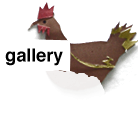(M)
Written and directed by Stephen Sinclair
Star rating ****
Reviewed by Sam Edwards.
In a recent interview, director Stephen Sinclair described his film as “ …- an art movie that is accessible to the general public. ”, and he is right. There is great entertainment to be had from the arrival of an unlikely Russian couple in New Zealand in a dumpy red lifeboat … “ Bloody Hell! “ cries a dinkum Kiwi fisherman on the wharf when it pulls in… and their consequent attempts to live a normal life – if that is, in fact, what artists ever live.
There is also interesting discussion arising from Sinclair’s intelligent laying out of the issues about the nature of art – and hence, for cinema addicts, about art cinema and entertainment. Those issues are initiated in part from social questions about the needs of people who uproot and try to pick up life in a different culture, and in part from the role of the lead character, himself an artist film maker, who exposes the attitudes and experiences which drive him as an artist.
But don’t make the mistake of thinking that RUSSIAN SNARK is stuffy elitist fare. The issues are real, but the medium through which they are presented – a film about film making – is funny, entertainingly and sometimes movingly human, and a great Kiwi insight into the pretensions of wannabe artists and the facts of art itself. Here Sinclair is a winner. His film contains wonderfully evocative images, imitations of art works – the links between the monochrome floating nude shots and the 1934 classic ECSTASY, for example, are clear. Original images ranging from the arrival of the hilarious lifeboat, through emotionally loaded close ups of the couple as their marriage disintegrates, to Misha’s ongoing commentary which includes lines like “ Art is a way of seeing… what lies beneath is memory, fragments of forgotten life. “ are perceptive gems. The dialogue, of course, is Sinclair’s, and the idea of memory and past experience mediating new perceptions is fundamental to understanding the nature of art.
The male lead is Misha, wonderfully brought to eccentric and passionately driven life by Kiwi actor Stephen Papps. He plays an art film maker who has come to New Zealand because Russia does not see the cinema with the same eyes as he does. When he arrives with starring wife Nadia, and they celebrate the luxury of a real bed in a very ordinary motel room, it is a clear suggestion that New Zealand and Russia may not be so far apart in their lack of appreciation of Misha’s art.
As Misha finds his new country as difficult as the old one his confidence goes and along with it, his relationship with Nadia and any progress on his film. Here Sinclair includes a series of suicidal images in which blood is seen running down Misha’s hand and dripping in the water of the same pond as the shots of his beloved Nadia. It seems unfair to call these studied, but if there are flaws in this film, and there are, it is that occasionally a viewer may feel some of the shots are somewhat self conscious, just as occasionally the dialogue seems stiff and artificially typical rather than the flowing kiwi speak which is so hard to write successfully. A delightful exception to this is the flawlessly natural performance by Stephanie Tauevihi as a neighbour who helps the self destructing Misha back to a kind of normality.
Here, then, is cinema where one can laugh at oddities even if they may be serious, be moved by situations and events which also seem more funny than sad, and enjoy a fascinating exploration of cinema art and people where your own eccentricities are allowed full reign.





 Russian Snark on DVD
Russian Snark on DVD